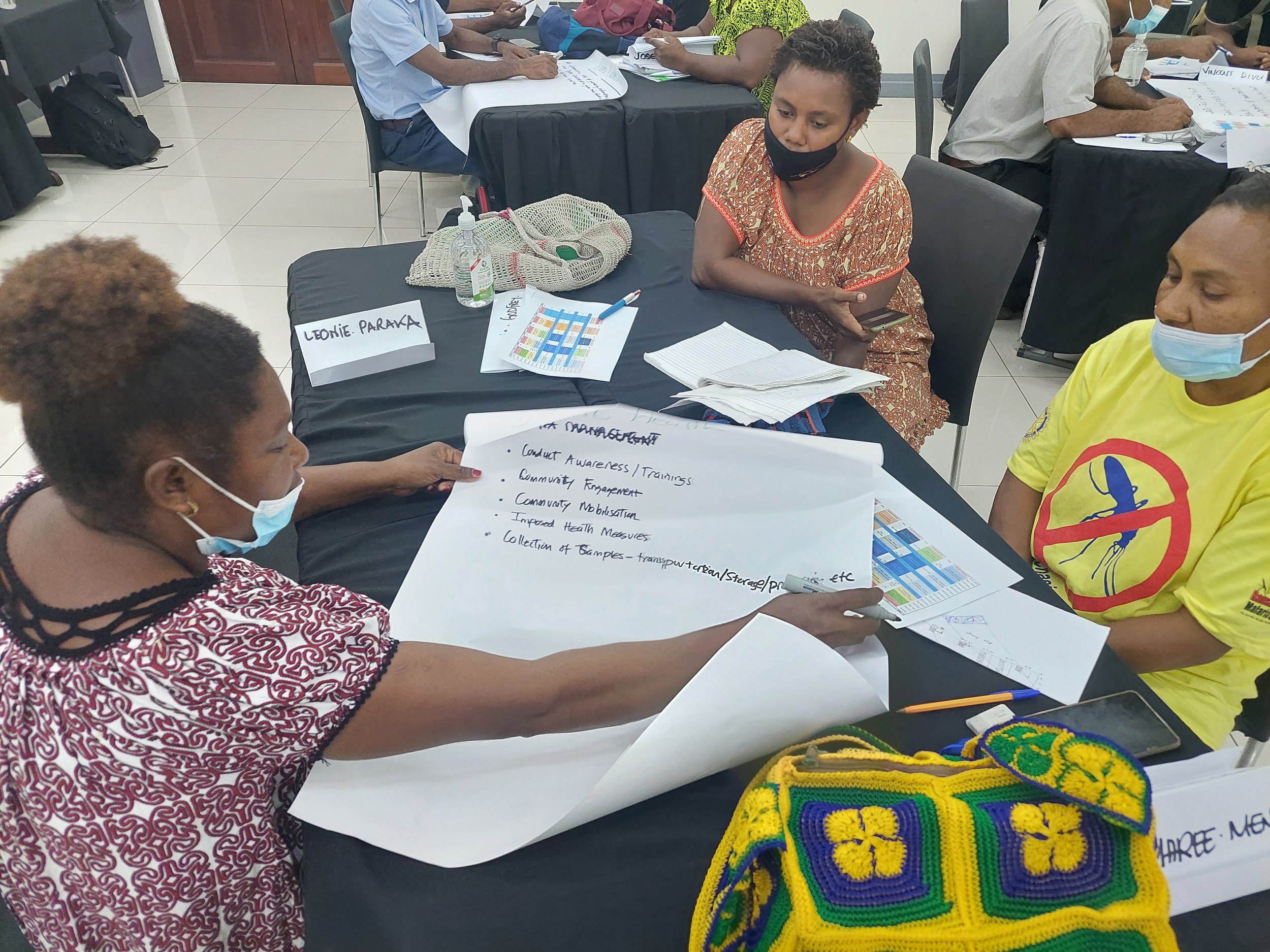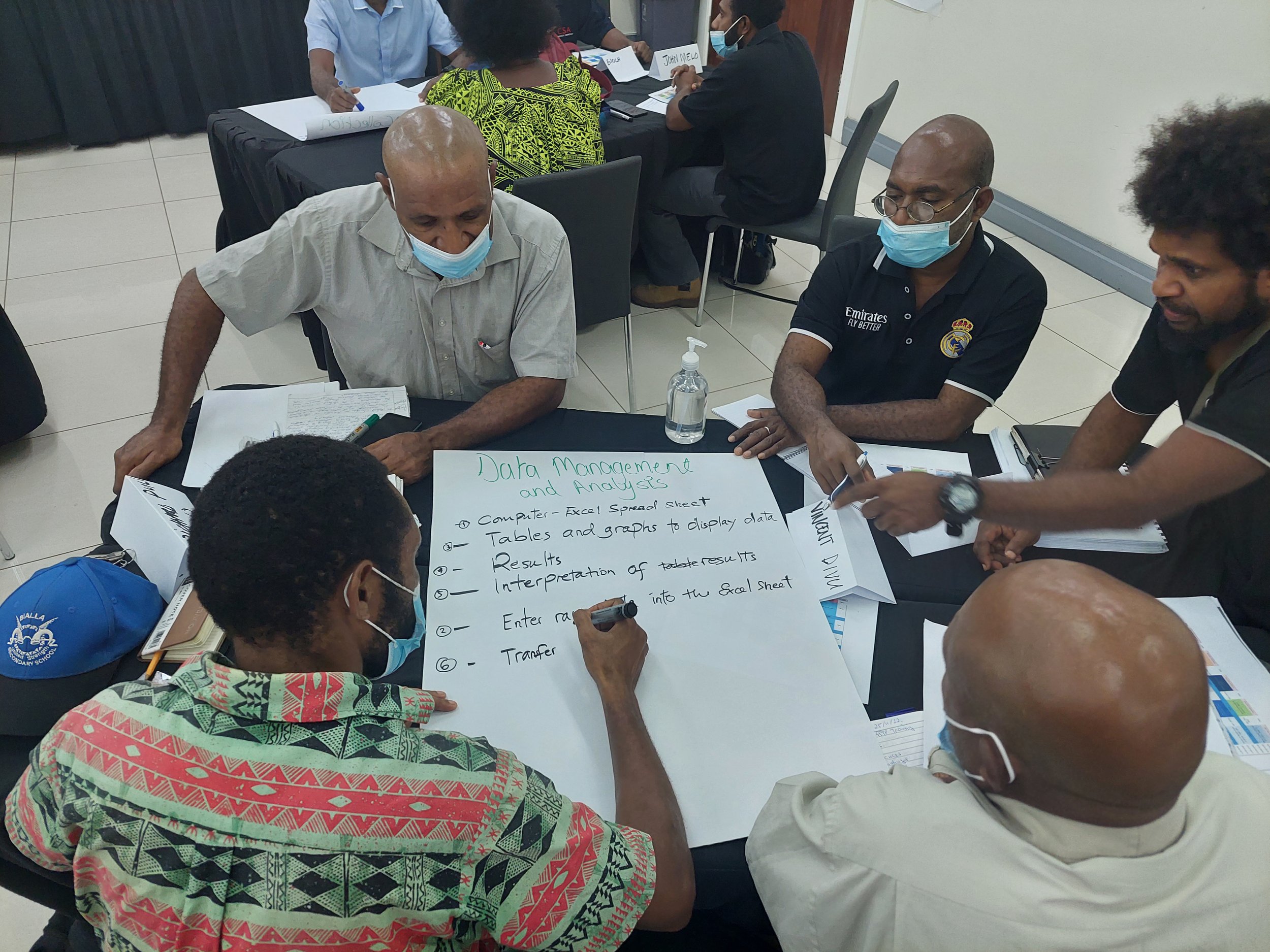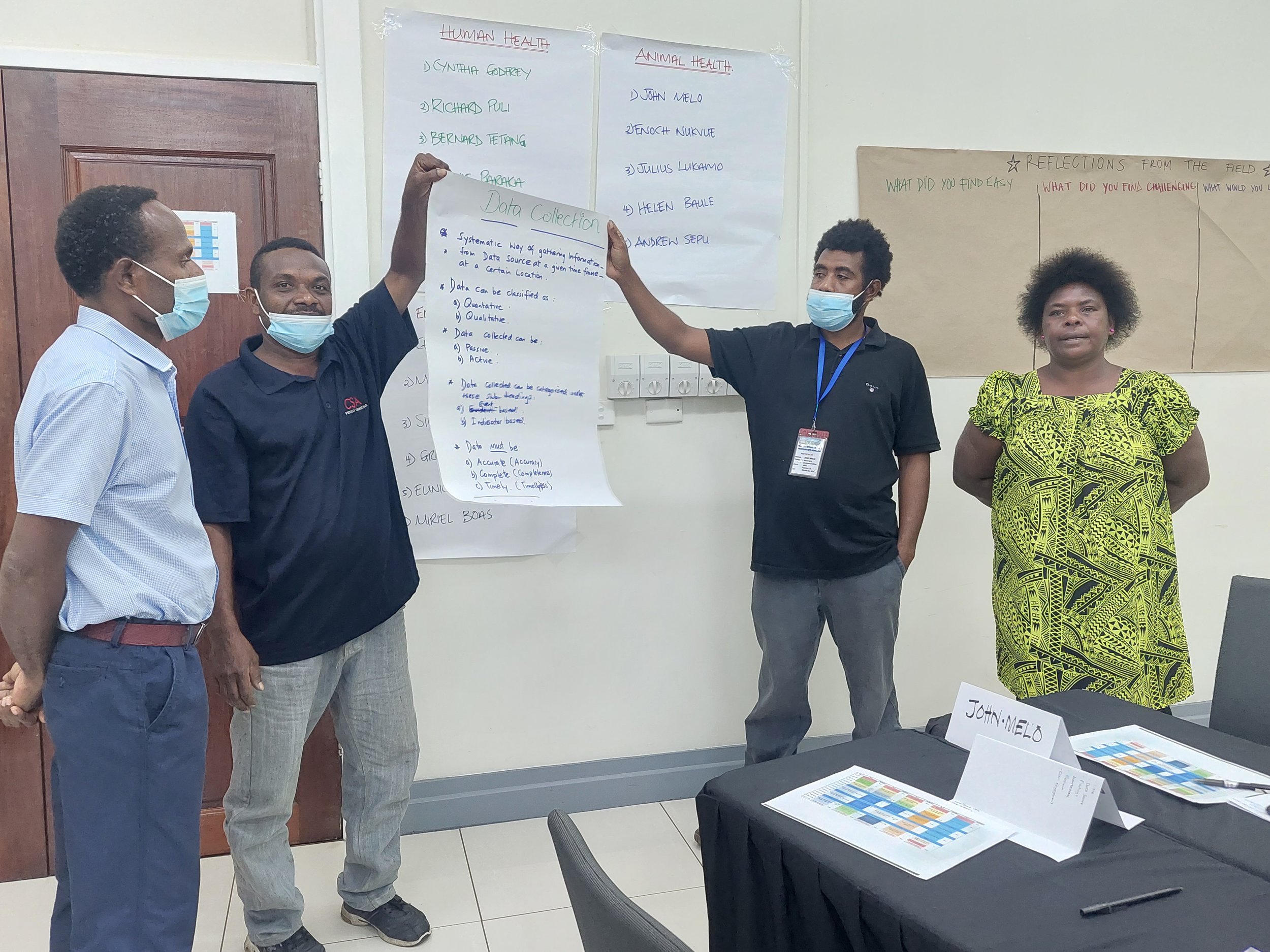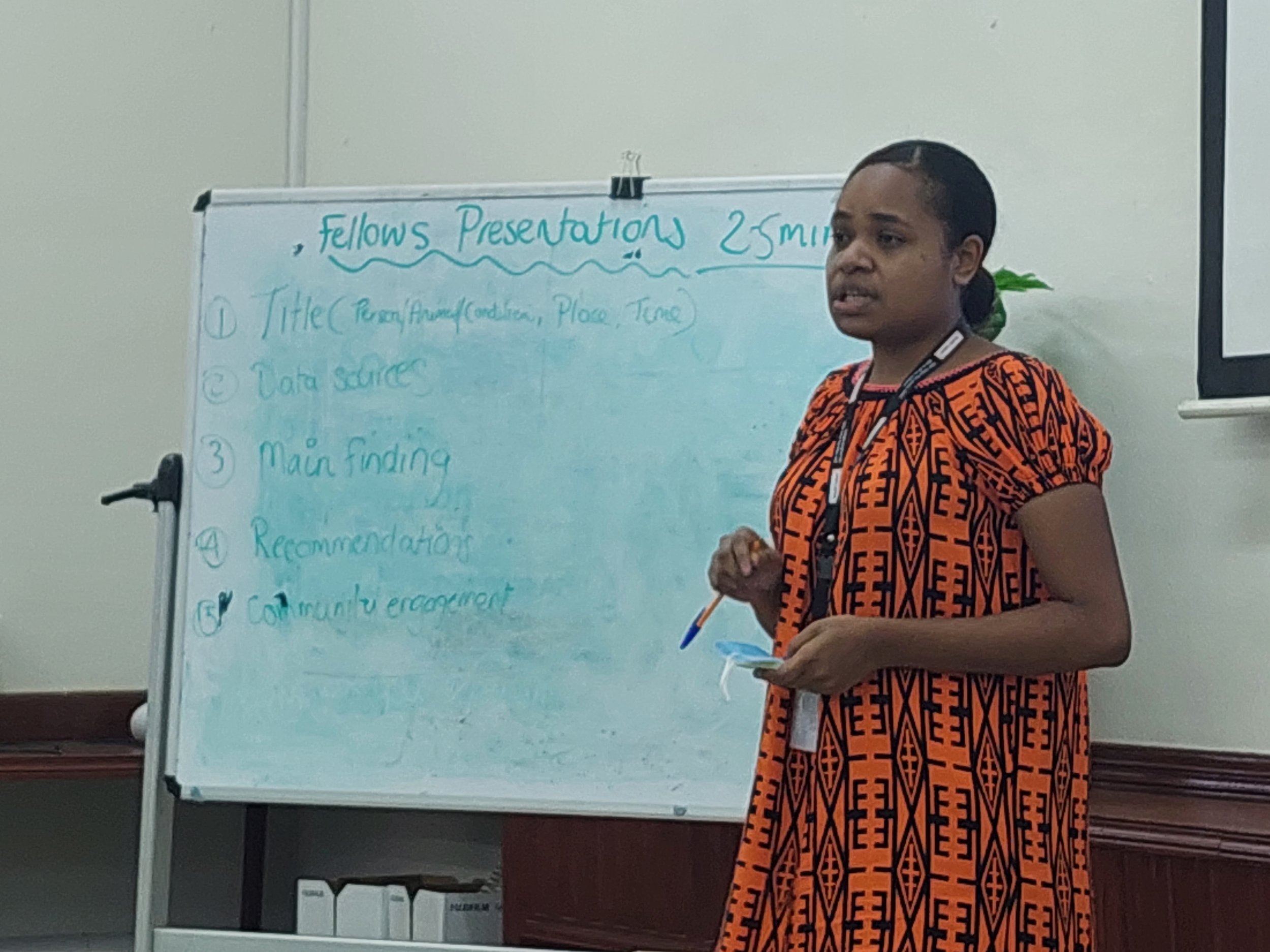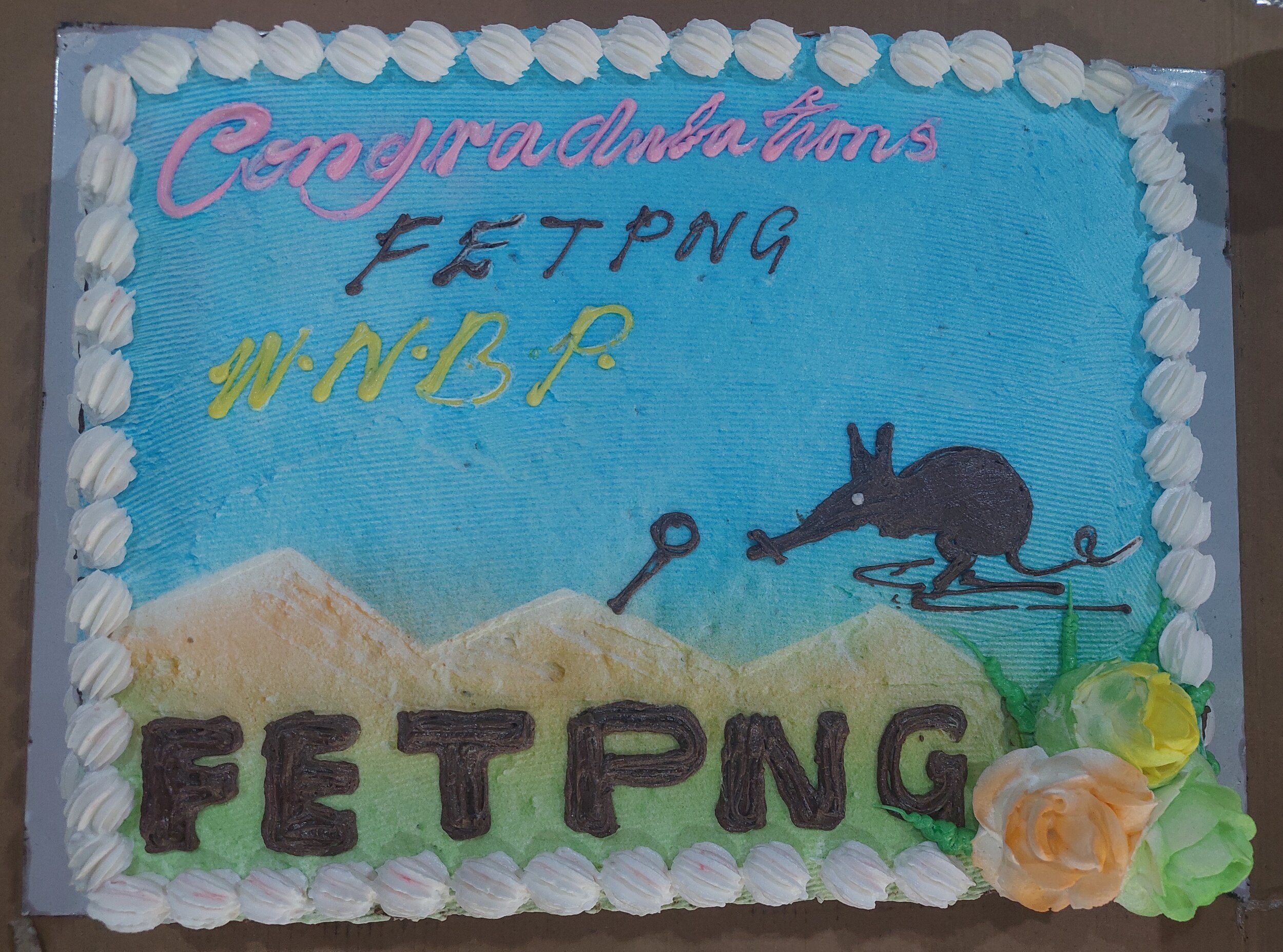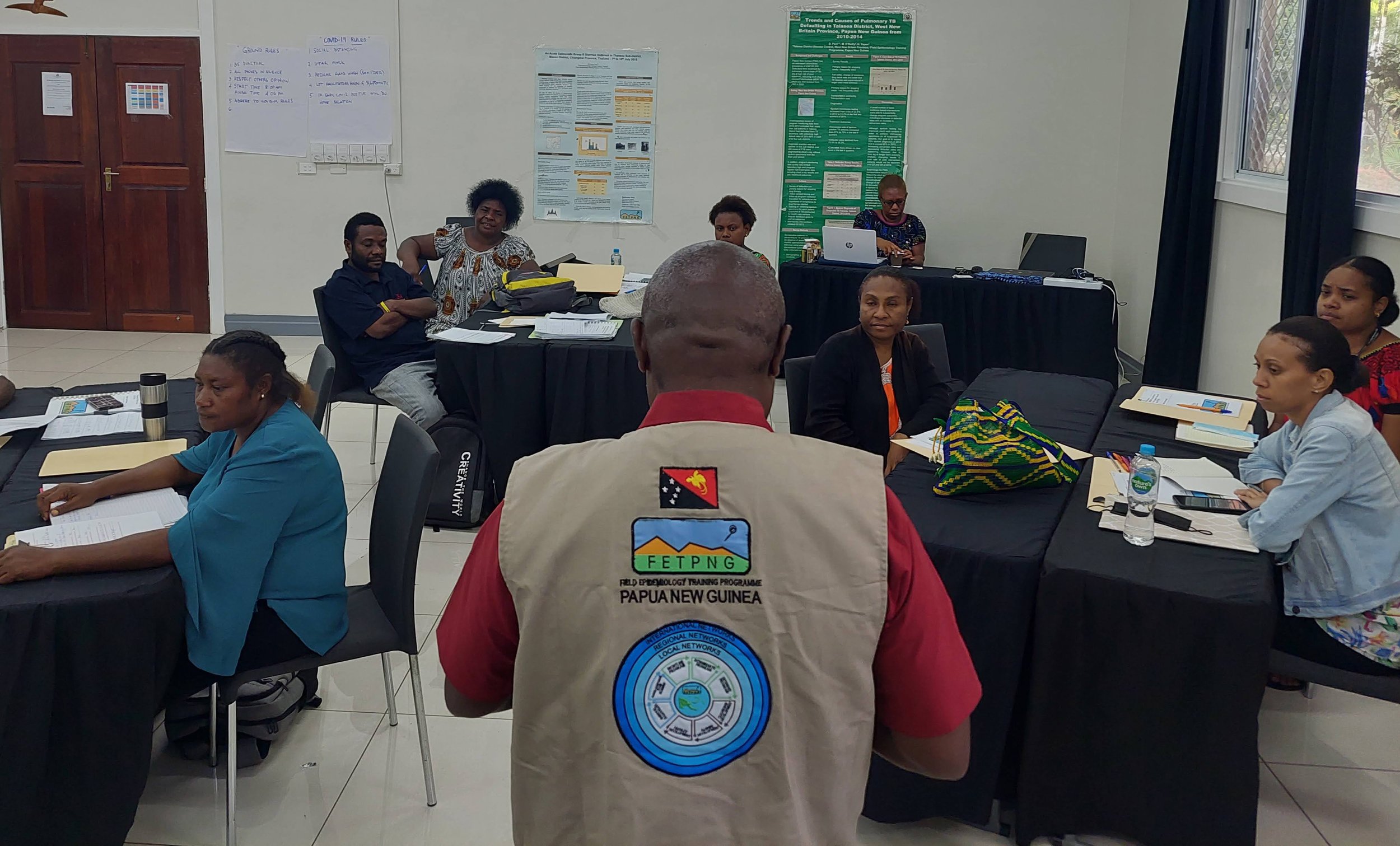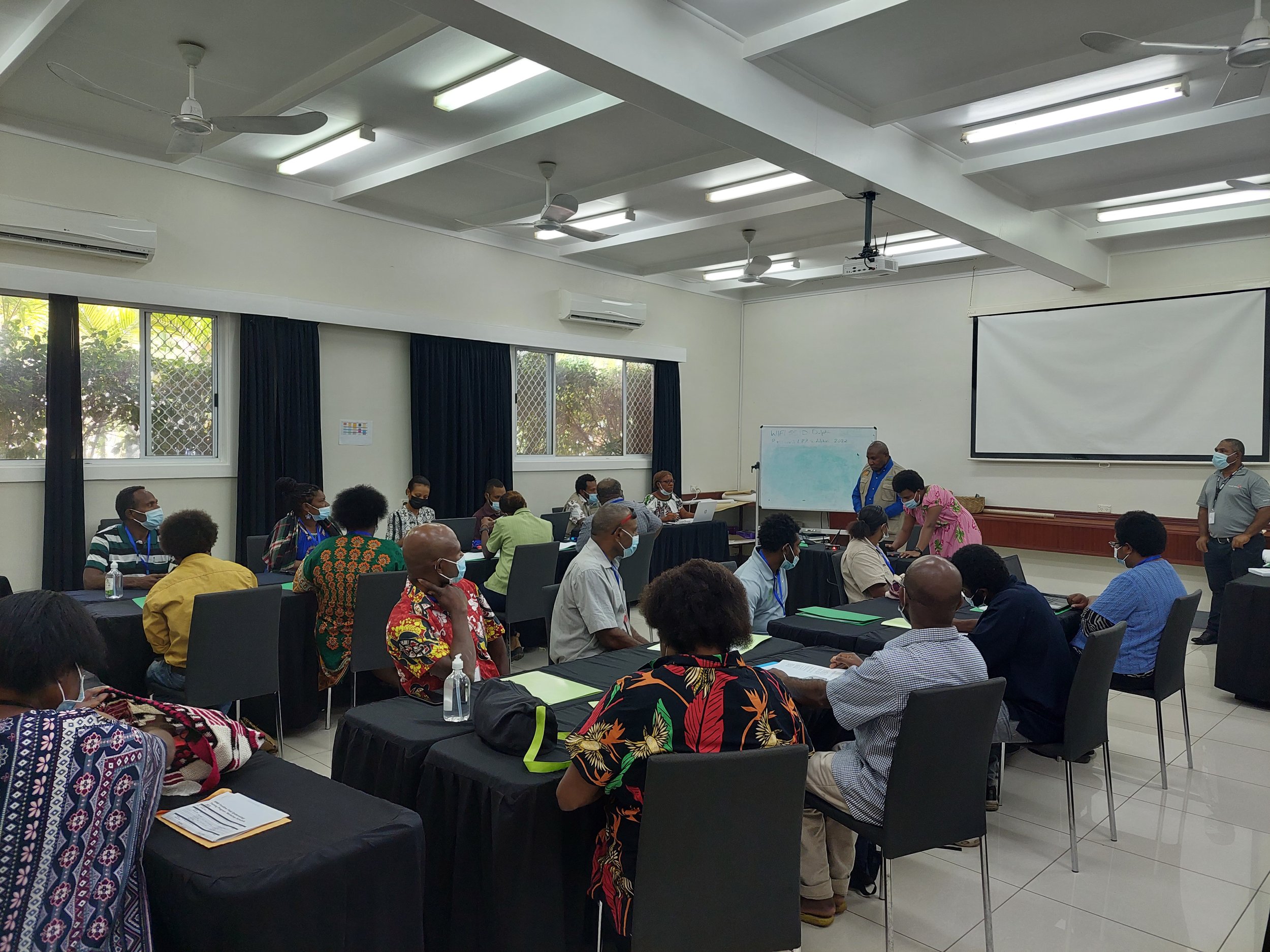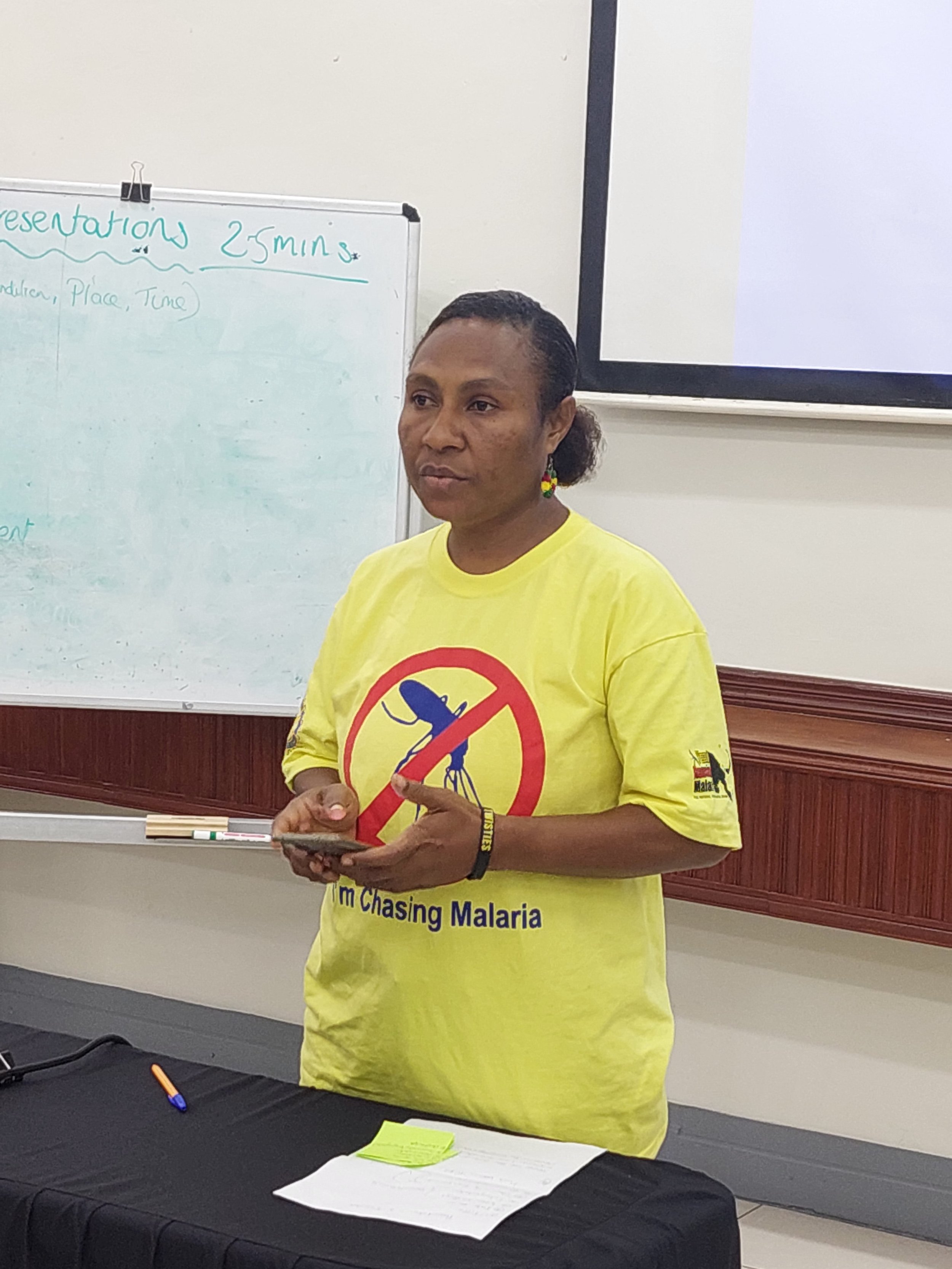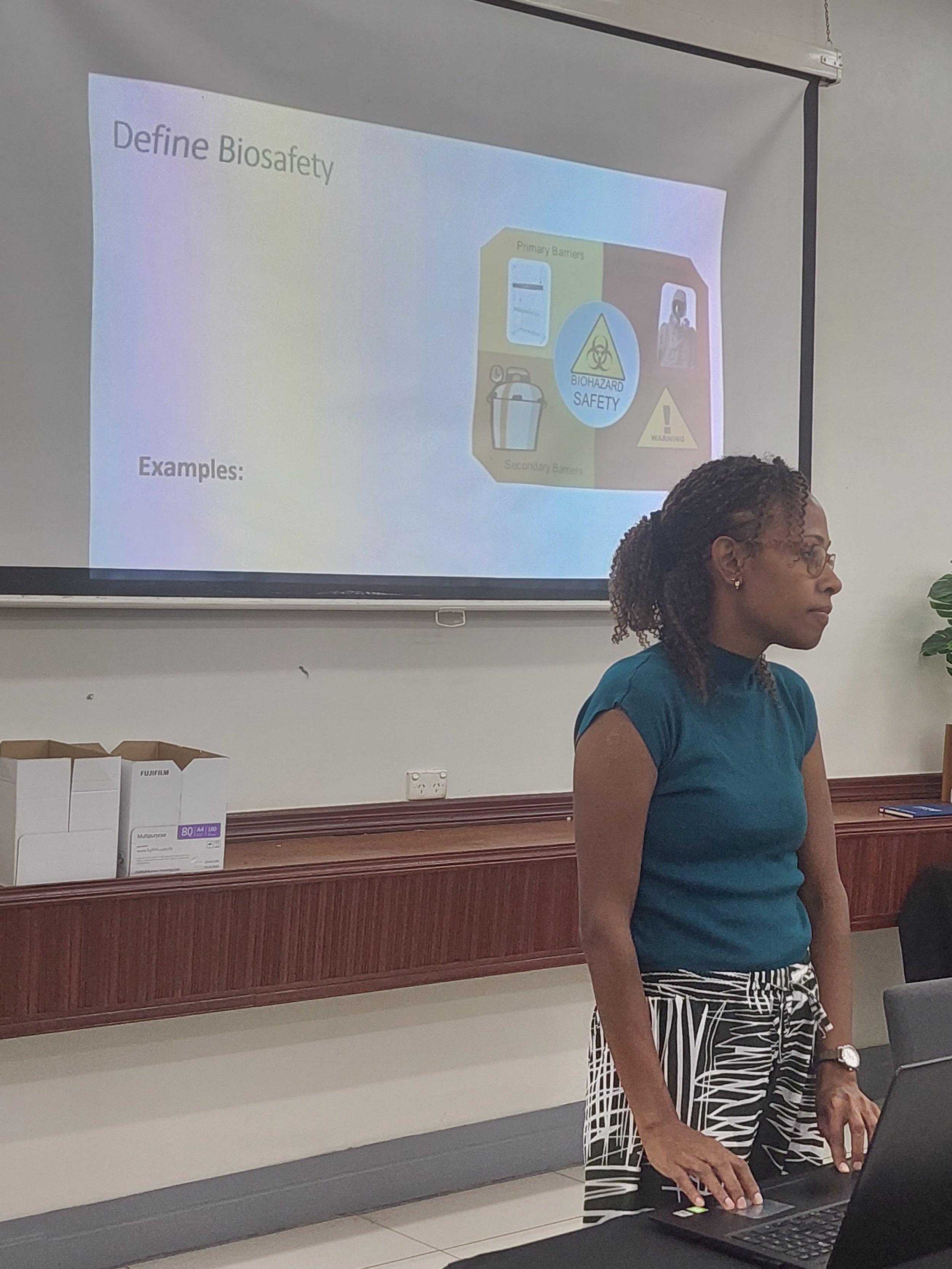One Health Frontline FETPNG (f-FETPNG)
The frontline Field Epidemiology Training Program of Papua New Guinea (fFETPNG) is one of 4 workforce development programs that falls under the National Department of Health’s FETPNG unit. The other programs are the intermediate FETP (iFETPNG), the advanced FETP (aFETPNG) and the Rapid Response Team training program (RRT).
What is Frontline FETPNG?
The f-FETPNG takes an innovative One Health approach, recognising the importance of building stronger collaborations across the human, animal and environmental health and to build a collaborative response.
There is a unique feature of this program, which is the strong focus on communities, aiming to build connections, enhancing the opportunity for communities to identify health events of concern and make evidence-based decisions using health data. Community members are encouraged to be involved in the investigation and response to public, animal and environmental health events.
History of Frontline FETPNG
The One Health f-FETPNG is new to PNG. The Programme is being piloted in four provinces during 2022 and 2023, and the curricula and approach will evolve with input from trainees, national faculty, graduates, external advisors and communities. By the end of the pilot the aim is to have a PNG focused, co-developed field epidemiology training program that fosters strong community engagement and involvement in health related decisions with a multi-sectoral approach (One Health).
Program Goal
The One health f-FETPNG programme aims to use training to strengthen engagement of communities and the district human, animal and environmental health services in surveillance and response. The objective is to improve surveillance data collection and analysis, interpretation, and communication at the district level. This includes the sharing and dissemination of health information back to the local communities and to improve the capacity to investigate and respond to public health events of importance in the future.
Program Structure
The program runs for 12 weeks, with three face-to-face workshops held at intervals. During the face-to-face workshops, participants meet for five days of intensive classroom training, where they learn the skills necessary for effective surveillance and outbreak response. This includes the use of case definitions, disease detection and reporting, data summarisation using tables and graphs, case investigation, outbreak investigation skills and response, monitoring and evaluation, data analysis and interpretation for decision making.
Between the workshops there are field intervals that last for five weeks. During the field intervals, participants return to their work and conduct field activities to practice, apply and reinforce what they have learned. During the fieldwork they are required to conduct a surveillance data review and field investigation report.
At the third workshop participants have the opportunity to present their fieldwork, and also, they learn how to engage with communities and how to communicate their findings effectively, by preparing material to address the community and scientific audience.
Trainees and Trainers
The Frontline programme is oriented to candidates that work in applied population, animal, environmental health at the district level, from the various sectors relevant to each province.
Trainers from FEiA’s Australian and Papua New Guinea team support the teaching and mentoring.
How is One Health f-Frontline important?
- On the job training: The participants remain in their workplaces during the program and directly apply their newfound skills to address health challenges they encounter in their work.
- Mentor based: The best learning comes from mentorship, both in the classroom and in the field. Each fellow is paired with an experienced mentor to coach, guide and direct them through the program.
- NDoH owned: FETPNG is embedded within the NDoH in order to enable direct involvement in real-time surveillance and health interventions and response that only NDoH affiliation can achieve.
